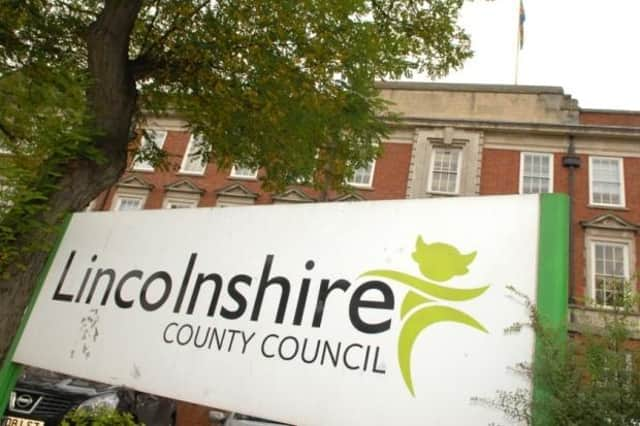Lincolnshire County Council could use £10.3m of reserves to balance budget


A report before councillors on January 4, puts forward three options for council tax rises in the next financial year, including a rise of two per cent for adult social care (ASC) and 0.99 per cent general tax using the £10.3 million reserves.
Other options include two per cent ASC and 1.99 per cent general taxation rise resulting in a use of £6.9 million reserves, and two per cent ASC and 2.99 per cent general which would mean the council needing to use just £3.4 million reserves.
Advertisement
Hide AdAdvertisement
Hide AdA report from the authority’s Executive Director for Resources Andrew Crookham noted the “immensely volatile” financial situations, including the impacts of the Covid-19 pandemic and the war on Ukraine.
It also notes high inflation rates which peaked at 11.1 per cent in October and the Bank of England increase of base rate to 3.5 per cent.
“My advice is to maximise the council tax flexibilities available, i.e. consider setting the maximum 4.99 per cent rate if the current circumstances are maintained through to February, to put the council in the strongest position possible from which to navigate the challenges likely to be encountered in the medium-term,” he said.
“It is also important to note that there is a cumulative impact to not maximising council tax, which could impair the funding base for all future years permanently.”
Advertisement
Hide AdAdvertisement
Hide AdHe added that whichever rate was set, use of reserves “will be required to balance the budget for the first time in five years”.
“Maximising the rate of council tax places a greater burden on residents, at a challenging time economically. However, doing so could ensure the council is able to provide better quality services for a longer duration if austerity is to return from 2025/26.”
The report said the government’s financial settlement for local government provided a “much-needed increase in core spending power” and reduced the deficit.
However, he warned of future risks, including social care reforms without full funding, the potential for a general election, the implementation of Fair Funding reforms and other unpredictable events.
Advertisement
Hide AdAdvertisement
Hide AdAnalysis has warned the council’s deficit could increase by £23 million from 2025/26 if there were further impacts.
Elsewhere, the council will look to make £11.5 million additional savings for 2023/24, rising to £23.3 million by 2026/27.
The report said these would come from changes to delivery models in adult care and children’s services; reduced travel and office-related costs arising from smarter working, as well as from reductions in office space and digital transformation.